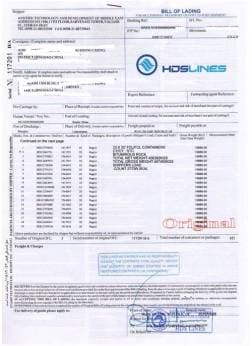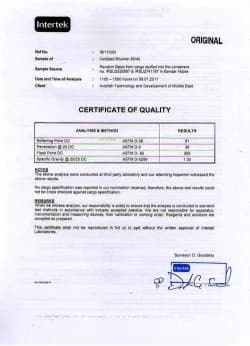Powder Sulfur: Uses in Agriculture, Rubber, and Chemicals
Powder Sulfur is one of the most adaptable forms of sulfur available to global industries. Produced by milling solid sulfur into finely divided particles, it provides a product that is reactive, consistent, and easy to blend into different processes. Its fine texture and large surface area distinguish it from lump and granular sulfur, making it a popular choice in sectors such as agriculture, rubber manufacturing, and chemical production.
Characteristics of Powder Sulfur
When sulfur is ground into powder, its properties change in ways that benefit industrial use. The small particle size enhances contact with other materials, allowing faster and more uniform chemical reactions. Powder Sulfur is bright yellow, non-toxic in normal use, and remains stable under dry storage conditions.
Most Powder Sulfur supplied to the market has a minimum purity of 99.5%, which meets the requirements of agriculture and general industry. A higher-purity grade, 99.8%, exists for processes where impurities must be extremely limited, such as in cosmetics or certain pharmaceutical applications.
Major Applications
1. Soil and Crop Management
One of the most important uses of Powder Sulfur is in agriculture. Farmers apply it as a soil conditioner to reduce alkalinity and improve nutrient uptake. By gradually converting to sulfuric acid in the soil, it lowers pH and supports healthy plant development. Powder Sulfur also functions as a protective agent against fungi, making it a widely accepted solution for managing diseases like powdery mildew.
2. Rubber and Elastomers
In the rubber industry, sulfur is indispensable. Powder Sulfur is particularly valuable in the vulcanization process, where sulfur atoms cross-link polymer chains to enhance flexibility, resilience, and strength. Because of its fine consistency, Powder Sulfur mixes evenly into rubber compounds, improving the performance of products such as tires, belts, and seals.
3. Industrial Chemistry
Powder Sulfur plays a role as a feedstock in chemical plants. It contributes to the production of sulfuric acid, one of the world’s most widely used chemicals. Beyond that, Powder Sulfur is found in the manufacture of detergents, dyes, and explosives. Its finely divided nature helps accelerate reactions and increases production efficiency.
4. Pharmaceuticals and Skincare
High-purity Powder Sulfur is also used in specialty applications. In dermatology, it is an active ingredient in creams and ointments for treating acne and other skin conditions. The pharmaceutical sector values its purity and controlled particle size, ensuring safety in sensitive formulations.
5. Specialty and Niche Uses
Additional applications range from water purification to pulp and paper processing and even pyrotechnics. Its ability to react predictably with other chemicals makes it a dependable raw material for many industries.
Packaging and Delivery
Because of its fine particle size, Powder Sulfur requires protective packaging to minimize dust and moisture absorption. Common methods include:
25–50 kg polypropylene bags with inner liners.
500–1000 kg jumbo bags for industrial bulk handling.
Customized solutions based on end-user requirements.
International shipments are simplified by the fact that Powder Sulfur is classified as Non-Dangerous Goods (Non-DG). This designation reduces restrictions, although safety measures remain important during storage and transport.
Safety and Handling
Although Powder Sulfur is not inherently hazardous, precautions are required when dealing with large quantities. Dust can become airborne and may present a fire risk under specific conditions. To reduce risks:
Store in a cool, dry, and ventilated environment.
Avoid sparks, flames, or heat sources near storage areas.
Use personal protective equipment (PPE), including masks, gloves, and safety goggles.
Keep packaging sealed to prevent contamination and humidity.
When handled responsibly, Powder Sulfur remains a safe and effective material for industrial use.
FAQs
Q1: How does Powder Sulfur differ from Granular Sulfur?
Powder Sulfur has a much finer particle size and higher reactivity, while Granular Sulfur is designed for easier handling with reduced dust.
Q2: What purity grades are available for Powder Sulfur?
Standard exports are supplied at 99.5% purity. High-purity 99.8% Powder Sulfur is available for pharmaceuticals and cosmetics.
Q3: Why is Powder Sulfur important for agriculture?
It lowers soil pH in alkaline conditions and also serves as a fungicide to protect crops from fungal diseases.
Q4: What packaging formats are common for Powder Sulfur exports?
Most shipments are made in 25–50 kg bags or 1 MT jumbo bags, depending on buyer needs.
Q5: Is Powder Sulfur safe to ship internationally?
Yes. It is categorized as Non-Dangerous Goods, though precautions against dust and ignition sources are always necessary.
Table of Contents
Technical Specifications
| Property | Typical Value |
|---|---|
| Purity (Dry Basis) | Min. 99.5% (99.8% optional) |
| Ash Content | Max. 0.05% |
| Moisture | Max. 0.5% |
| Acidity (as H₂SO₄) | Max. 0.02% |
| Particle Size (Mesh) | Customizable (10–200 mesh) |
| Color | Bright Yellow |
| Classification | Non-DG for Sea Transport |


